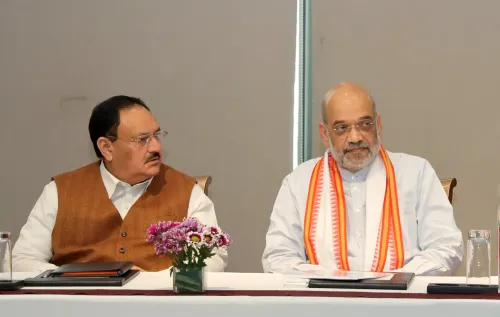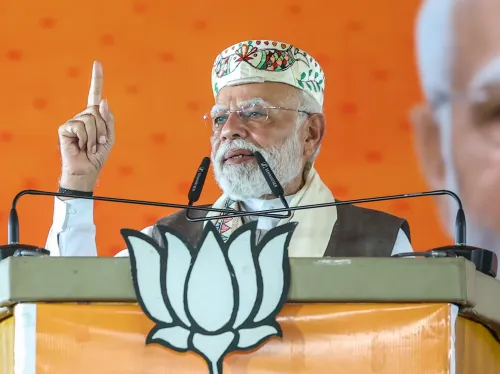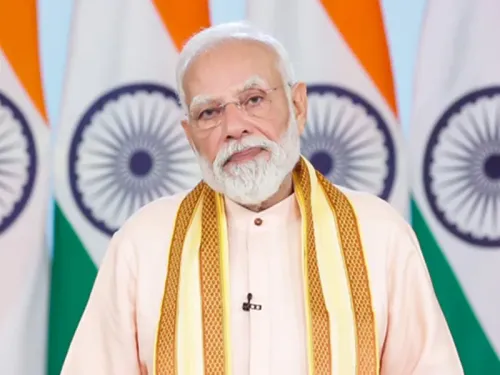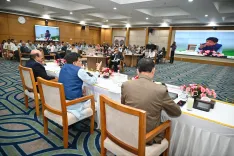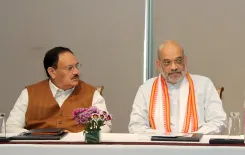How Much Investment Have Indian Space Startups Attracted?
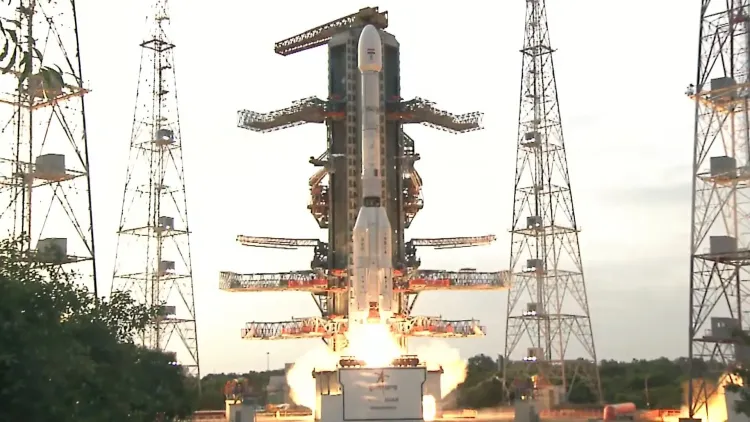
Synopsis
Key Takeaways
- Indian space startups have garnered a total investment of $430 million.
- The government is actively promoting private sector participation in the space industry.
- IN-SPACe facilitates technology transfers and supports non-governmental entities.
- Upcoming satellite missions include NISAR, Oceansat-3A, GSAT-7R, and others.
- India has space cooperation agreements with 61 countries.
New Delhi, Aug 2 (NationPress) Indian space startups have attracted an impressive $430 million in investments up until March of this year, according to Union Minister of State for Science and Technology, Jitendra Singh. He made this announcement in Parliament, highlighting the fruitful outcome of opening the space sector to private participation.
In a written response delivered in the Rajya Sabha, Singh elaborated on the active involvement of private industries in the space domain.
“The government has rolled out reforms in the space sector, encouraging private entities to engage in both commercial ventures and scientific research,” Singh stated.
“By March 2025, a cumulative investment of $430 million has been recorded in Indian space startups,” he continued.
To enhance private sector engagement in the space industry, the government established the Indian National Space Promotion and Authorisation Centre (IN-SPACe) in June 2020, functioning as an autonomous body under the Department of Space (DoS) in India.
According to Singh, IN-SPACe has so far enabled the transfer of 93 technologies developed by the Indian Space Research Organisation (ISRO).
“Based on the data from the IN-SPACe Digital platform, over 400 non-governmental entities (NGEs) have submitted more than 650 proposals for various support activities including facilitation, mentorship, technology transfer, and authorization,” Singh said.
“To date, IN-SPACe has facilitated the transfer of 93 ISRO technologies to NGEs. These initiatives are driving all NGEs to create innovative space technologies and generating significant investment,” he added.
IN-SPACe serves as a one-stop facilitator for non-governmental entities involved in numerous space activities, such as developing launch vehicles and satellites, offering space-based services, and sharing space infrastructure.
Additionally, the Minister announced plans for major satellite missions scheduled for later this year, extending to March 2026.
This includes the recently launched NASA-ISRO Synthetic Aperture Radar (NISAR) satellite. Other missions on the list are Oceansat-3A, GSAT-7R, NVS-03, and TDS-01.
Singh also shared information about ISRO's collaborative satellite missions with various space agencies, including a proposed G20 Satellite Mission focused on Environment and Climate Observation, the LuPEX/Chandrayaan-5 lunar mission in partnership with Japan’s space agency JAXA, and the Venus Orbiter Mission with Russia and Sweden.
“India currently maintains space cooperation agreements with 61 countries and five multilateral organizations. ISRO has engaged in joint satellite missions, hosted foreign payloads, established overseas ground stations, and participated in collaborative experiments and data sharing,” the Minister stated.

